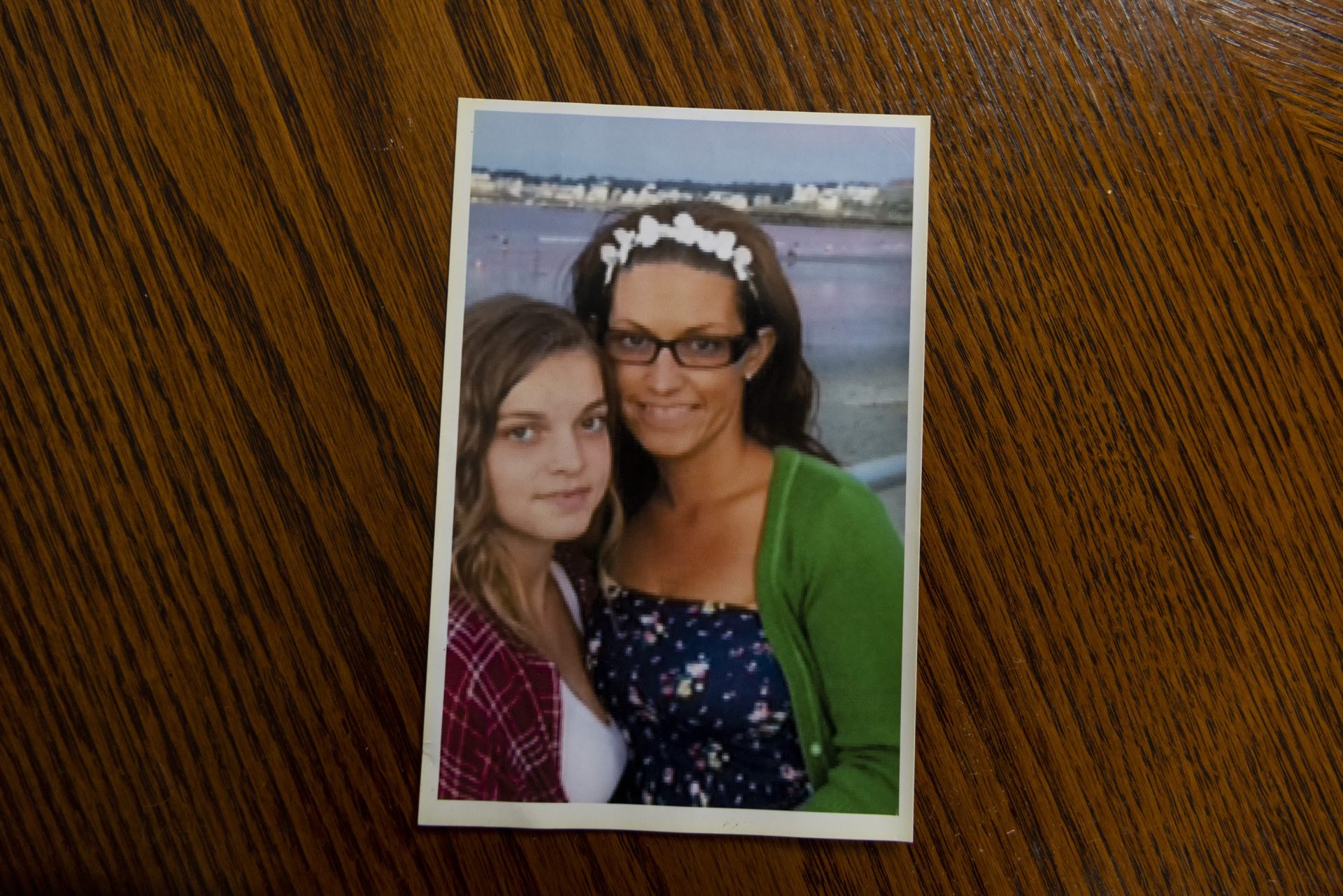Fewer women are seeking addiction treatment in Mass. as use and overdoses increase

A photograph of Patti Parent with her daughter Katie three days before her death in 2015. (Jesse Costa/WBUR)
Despite the latest statistics showing an increase in opioid use and overdoses among women in Massachusetts, the number of women seeking addiction treatment has dropped dramatically.
While the pandemic presented challenges to accessing treatment because of staffing and concerns about congregate settings, state officials are looking at other factors that may be behind the drop. Meanwhile, there are signs that lower demand is changing some programs, especially those specifically for women.
Many providers worry that drop in demand could result in fewer treatment programs. Some loved ones of women struggling with addiction are voicing concerns as well.
Among them is Patti Parent, of Whitman. Parent credits a women’s treatment program on Cape Cod for giving her three good years with her daughter, Katie.
In high school, Katie was a good student, a cheerleader, even prom queen — twice. But after graduation, drugs overtook her life and she went through several addiction treatment programs. The one place that seemed to help was Emerson House, part of Gosnold Treatment Center on Cape Cod, where Katie went for three months in 2012.
“She was like herself again when she got out of there, and it was really nice,” Parent said. “I felt like I had my daughter back.”
Katie was doing well for a while, taking care of her children and getting her life together. But recovery typically isn’t linear and Parent came home one day to hear Katie’s daughters calling for help because they had found Katie, who was then 35 years old, on the floor unresponsive.
“My granddaughters were screaming, ‘Nana, Nana, mom isn’t breathing,’ ” Parent said.
Parent was trained to administer the anti-overdose medication naloxone. She tried with Katie.
“I gave it to her twice but it didn’t work,” Parent said, tearfully. “And my neighbor next door came over and helped. And the ambulance came and everything, the police and it was just awful.”
Ever since that day in 2015, Parent regularly visited Emerson House in Katie’s memory. Parent would often bring toiletries or art supplies for the patients. She said the visits were to express gratitude for the time she had with her daughter.
“When I brought supplies and things, it was like, you know, these girls are working on it, so try to help them out as much as I can, even a little bit,” Parent said. “And Katie just loved it there.”
So Parent was troubled when she discovered that Gosnold Treatment Center, which ran Emerson House, no longer offers single gender treatment and ended its program for women and their young children.
“It was really good in it being just for women,” Parent said. “It made the girls more comfortable. You know, my daughter wouldn’t have opened up if it was a coed thing.”
Officials at Gosnold say they’re changing all of their programs, not because of lower demand from women necessarily but to provide treatment that focuses on a range of mental health issues that often accompany addiction. State data show that mental health care is critical for effective addiction treatment because poor mental health is linked with addiction. Gosnold is evolving, CEO Richard Curcuru says, because there were too few treatment beds to meet the demand for more comprehensive care.
“We were predominantly an addiction center, but now we’re a behavioral health organization,” Curcuru said. “We’re treating patients who are suffering both from substance use disorder and a co-occurring mental illness. And we know that 85% of the patients who have an addiction also have a co-occurring disorder. So to treat one without the other is really negligent.”
Gosnold is not alone in responding to changes in the treatment landscape. Several providers acknowledge that fewer women have been seeking treatment, especially during the pandemic. The state is looking into this decline which comes amid surveys suggesting that the number of women who reported using substances – largely because of pandemic stress – is on the rise.
Read the rest of this story and hear the audio version at WBUR.org.
